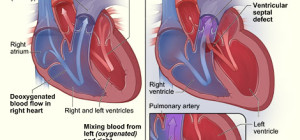 Over the last three decades, the advent of modern communications has changed society almost beyond recognition. It's no wonder that this has had an impact on the health industry, but not all educational institutes have kept up to date. Even newly qualified professionals can find themselves adrift and uncertain how to approach the new landscape. This article looks at some of the changes that have occurred and what they mean for the industry.
Over the last three decades, the advent of modern communications has changed society almost beyond recognition. It's no wonder that this has had an impact on the health industry, but not all educational institutes have kept up to date. Even newly qualified professionals can find themselves adrift and uncertain how to approach the new landscape. This article looks at some of the changes that have occurred and what they mean for the industry.
Changing customers
One of the most notable things about this societal shift is how it has changed customers. Doctors now talk about the rise of the expert patient, referring to patients who read extensively about their health problems to the point where they are sometimes better informed than those treating them, who have to divide their attention between many different subjects. These patients are particularly good at identifying new potential treatments, but may not be able to assess them effectively or understand the risks they entail. Doctors need to be able to engage with these patients respectfully, evaluate their suggestions and talk them through the advisability of different approaches.
The flip side of the expert patient phenomenon is that many patients convince themselves they have illnesses when in fact they're perfectly healthy. Certain illnesses become fashionable at particular times-currently, for example, there's a craze for self-diagnosed gluten intolerance. Dealing with these patients can be challenging because they will sometimes self-medicate if they think they are not being listened to. Sometimes, however, it turns out they have other kinds of medical problems.
Online advice sites
Part of the reason for the expert patient phenomenon is the development of online advice sites where people can find information about many different conditions. However, these also have their uses for medical professionals. Firstly, they can attract patient comments that provide useful information about aspects of treatment-for instance, which medicines many patients find difficult to take as prescribed, and what kinds of exercise they find helpful. Secondly, they are often in search of professional expertise. Medical specialists who contribute to such sites can do a lot of raise their profiles and attract new patients. In the process, they can help patients to better understand their conditions.
Online consultations
The development of the online consultation has revolutionized parts of the health industry. It is particularly useful for patients living in remote places and for those whose health conditions or disabilities make it difficult for them to travel even short distances. Of course, telephone consultations have been an option for many years, but the difference with online ones is that it's possible for doctors to identify physical symptoms, and many patients find it easier to communicate when they can use pointing and gestures as well as words.
Online consultations are becoming increasingly effective due to the development of technology that can report symptoms directly over the internet. This makes it possible for doctors to do things like checking pulse and blood pressure remotely. In addition to consultations of this sort, many doctors and specialists communicate with their patients using email as a convenient method of exchanging updates and keeping track of progress.
Online pharmacies
Alongside this change in medical practice there have arisen complementary changes in pharmaceutical practice. Due to the simpler process of warehousing and acquiring stock, online pharmacies are often able to offer their wares at lower prices than their traditional competitors. Their delivery networks and willingness to provide products in bulk make them a good choice for patients living in remote places, and they generally use insulated packaging to ensure those products are not damaged by extremes of temperature on their journey.
The problem with online pharmacies is that there are some unlicensed ones out there selling supposed medicines that may not be the real thing, or may contain too much or too little of the active ingredient. Doctors need to make sure that their patients understand this and know how to check that they are ordering from licensed companies, while legitimate pharmacies need effective marketing in order to distinguish themselves from their price-cutting but potentially dangerous competitors.
Marketing medical services
Marketing medical services in this changing environment can be quite a challenge, requiring a thorough understanding not only of the general principles of marketing but also of patients' interests and concerns. This is something quite outside the experience of most advertising agencies so it's worth bringing in a specialist in order to make sure it's done effectively. The returns on this can be high as good online marketing is a very effective way of attracting new patients and establishing an impressive reputation.







